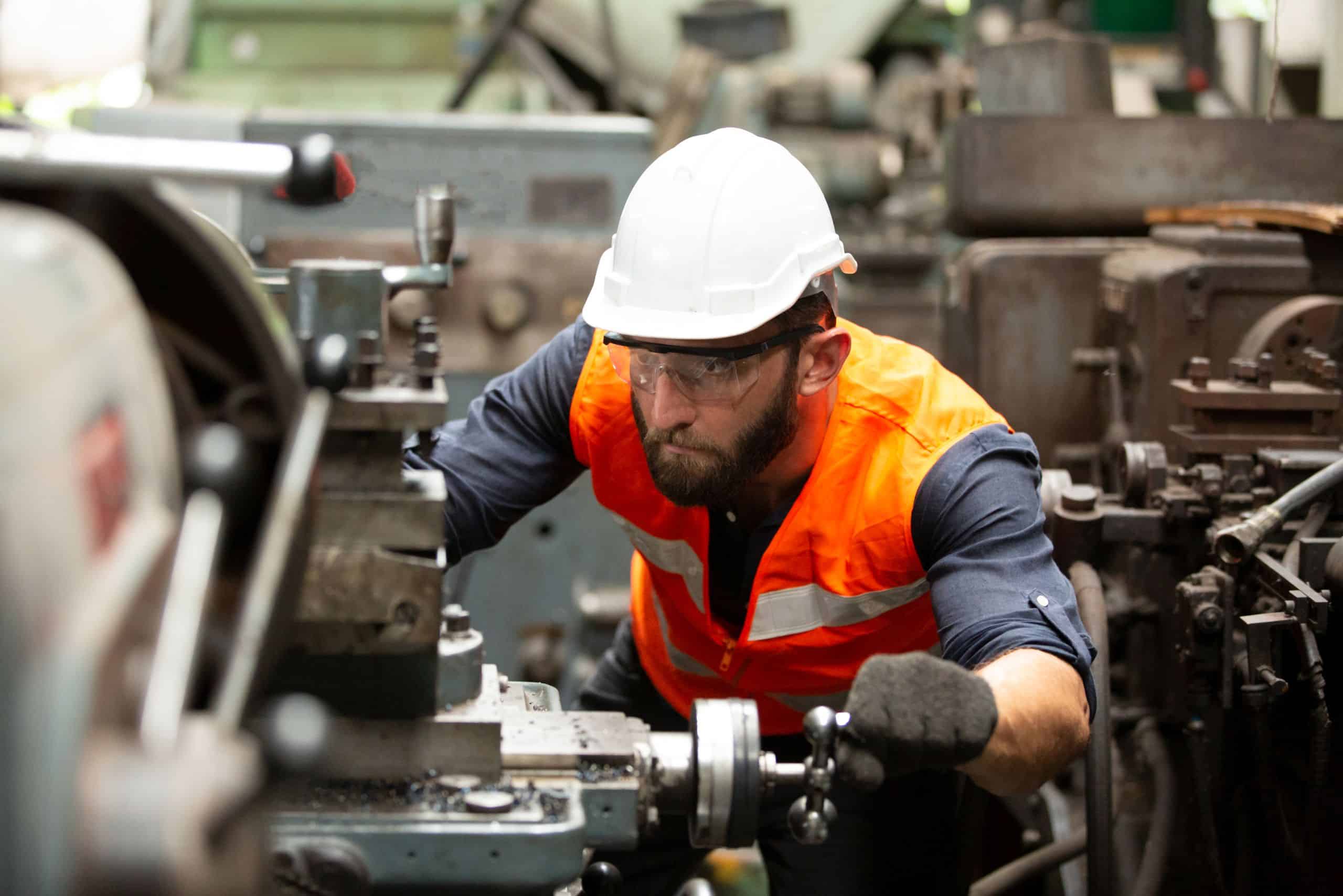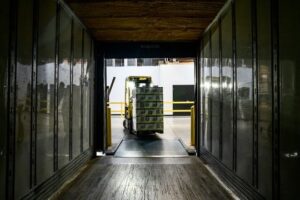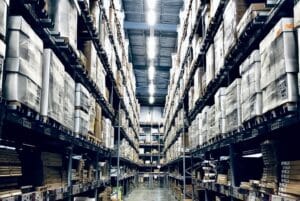Industrial logistics: a strategic pillar for optimizing production flows
Logistics
Supply Chain
September 27, 2024

In an increasingly competitive economic environment, industrial logistics is proving to be a true lever for improving the operational efficiency and profitability of manufacturing companies. By seamlessly orchestrating the flow of raw materials, resources, and finished products, this discipline plays a central role in optimizing the supply chain. Let's explore the ins and outs of this vital function, as well as the challenges and future prospects that are shaping its constant evolution.
What is industrial logistics?
Industrial logistics is the judicious application of logistical principles to optimize the physical and informational flows related to production. Its primary objective is to efficiently coordinate the movement of materials, components, and products throughout the manufacturing process, from the initial order to final delivery.
This discipline is distinguished by its focus entirely on the internal needs of the company, unlike distribution logistics, which targets external customers. Indeed, industrial logistics is specifically designed to meet the rigorous requirements of production units, such as space constraints, unexpected changes in priorities, real-time delivery imperatives, and returns management.
The different types of logistics: an overview
Before delving into the specifics of industrial logistics, it is important to emphasize that it is an integral part of a broader range of logistics disciplines. Each sector of activity, whether it be mass retail, e -commerce , transportation, or agri- food , adopts logistics approaches tailored to its own challenges and objectives.
The main categories include:
- Production logistics : encompassing all logistical activities related to manufacturing, from the purchase of raw materials to the delivery of the finished product. Its objective is to reduce the time between ordering and product delivery.
- Distribution logistics : also called transport logistics, it ensures the efficient delivery of the company's products to customers, respecting the requirements of quantity, quality and delivery times.
- Reverse logistics : known as " reverse logistics ", this branch aims to optimally manage the reverse flow of defective or non-compliant products, from the consumer to the manufacturer, in order to ensure their repair, recycling or disposal.
Although distinct, these different facets of logistics are closely linked and collectively contribute to the overall efficiency of the supply chain.
The primary objectives of industrial logistics
Industrial logistics pursues several fundamental objectives to guarantee optimal organization of the supply chain:
- product and information flows : by streamlining internal and external movements, such as transformation, machining, handling, intermediate stock management, raw material procurement, packaging and storage, industrial logistics aims to increase overall efficiency.
- Cost reduction : By optimizing logistics processes, companies can reduce the costs of procurement, delivery, production and storage, thereby improving their profitability.
- Respect for delivery deadlines : closely linked to the previous point, respecting delivery deadlines is a key factor in competitiveness on the market, guaranteeing optimal responsiveness to customer demands.
- Contribution to sustainability and environmental responsibility : by adopting more environmentally friendly processes and respecting current quality standards, industrial logistics enables companies to reduce their ecological footprint and promote sustainable practices .
By effectively coordinating all these flows, industrial logistics aims to optimize the entire supply chain, from product creation to final delivery, while minimizing costs and delays.
History and evolution of industrial logistics
Although modern industrial logistics techniques are sophisticated and technological, this discipline has its roots in early human civilizations . From the earliest times, societies recognized the need to supply and transport goods, particularly food, to ensure their survival. However, these practices were then limited to simple storage and manual distribution.
The advent of industrialization significantly complicated logistics operations, with a proliferation of material and product flows. It is in this context that inventory management emerged, marking a crucial step in the evolution of industrial logistics.
Successive technological innovations have subsequently made it possible to further optimize supply chain processes, particularly through:
- Warehouse automation by facilitating storage, picking and packaging tasks, automation has significantly increased operational efficiency.
- Computerization : the introduction of computer systems has enabled more precise and real-time management of logistics flows, as well as better visibility on the profitability of the activity thanks to detailed reports.
- Real-time data collection : Information and communication technologies (ICT) have made it possible to continuously collect and analyze key data, providing a comprehensive and up-to-date view of the supply chain.
Today, industrial logistics continues to evolve rapidly, driven by innovations such as artificial intelligence, the Internet of Things (IoT) and blockchain, which promise to further optimize processes and increase transparency and traceability.
The key components of industrial logistics
Industrial logistics is a complex and interconnected system of different links, each playing an important role in the efficient coordination of the supply chain. Key components include:
- Inventory management : whether it concerns stocks of materials, components or finished products, industrial logistics aims to optimize the different storage stages to guarantee a constant availability of the resources needed for production.
- Supply : This crucial process ensures a continuous flow of raw materials and all the elements required to fuel production and service activities, thus avoiding supply disruptions.
- Transportation and distribution : planning, real-time tracking and optimization of transport routes are essential to efficiently deliver products to their final destinations.
- Returns management : representing a major source of additional costs, the management of returns of defective or non-compliant products requires a rigorous and efficient approach.
Each of these elements contributes to the fluidity and efficiency of the industrial supply chain, ensuring uninterrupted production and timely delivery of finished products.
Current challenges and issues in industrial logistics
Despite technological advancements and progress made, industrial logistics continues to face several challenges:
- Ever shorter delivery times : customer expectations for speed of delivery are constantly increasing, putting constant pressure on logistics processes.
- The growing importance of sustainability and respect for the environment : companies are now required to reduce their carbon footprint and adopt more environmentally friendly practices, which requires constant adaptation of logistics processes.
- Risk management : Supply chains are exposed to various risks, such as production interruptions, natural disasters, cyberattacks and geopolitical disruptions, requiring proactive risk management.
To meet these challenges, companies must demonstrate agility, innovation and a capacity for continuous adaptation, by leveraging new technologies and adopting sustainable and resilient logistics strategies.
The digitalization of industrial logistics
In a world of technological evolution, digitalization plays a leading role in the transformation of industrial logistics. Companies are increasingly adopting advanced digital solutions to optimize their operations and remain competitive in the market.
- Integrated information systems ( ERP , WMS , APS ): Management software such as ERP (Enterprise Resource Planning), WMS ( Warehouse Management Systems ), and APS (Advanced Planning Systems) enables centralized, real-time supply chain management. These tools provide increased visibility into field processes, facilitating informed decision-making and optimizing logistics flows.
- Using a TMS ( Transport Management System ): Transport management systems (TMS) are valuable solutions for analyzing, tracking, and optimizing transport operations. Thanks to their advanced features, such as real-time tracking, increased visibility, route optimization, and reduced transport costs, TMS contribute to improving the overall efficiency of industrial logistics.
- The Internet of Things ( IoT ) for tracking and traceability: The Internet of Things (IoT) connects physical objects to the internet, enabling real-time data collection and analysis. In the context of industrial logistics, the IoT offers improved visibility into supply chain operations, facilitating product tracking and traceability at every stage.
- Robotics and warehouse automation : The use of collaborative robots and warehouse automation optimizes storage, picking, and packaging activities. These technologies reduce human error and accelerate procedures, thus improving the overall efficiency of logistics operations.
- The impact of blockchain on transparency and traceability : Blockchain, a decentralized and tamper-proof database, offers complete transparency and unalterable traceability of transactions throughout the industrial supply chain. This technology strengthens trust between the various stakeholders and facilitates the secure sharing of information.
By leveraging these technological innovations, companies can optimize their logistics processes, increase efficiency, reduce costs and offer a better customer experience, while strengthening their competitiveness in the market.
The industrial logistics of tomorrow: future prospects
The future of industrial logistics promises to be full of challenges and opportunities, shaped by several major trends:
- Artificial intelligence and machine learning : thanks to the analysis of large volumes of data, AI and machine learning will make it possible to improve demand forecasting, optimize supplier selection, streamline production and offer a better customer experience.
- Green and eco-responsible logistics : logistics practices will evolve towards greater sustainability, with the adoption of electric transport, responsible waste management, optimization of product life cycles and a significant reduction in carbon footprint.
- The future of transport : the emergence of technologies such as drones, autonomous vehicles and intelligent delivery systems will radically transform delivery processes, offering increased efficiency and a significant reduction in costs.
These promising prospects will accelerate storage operations, optimize the use of warehouse resources, and, most importantly, significantly reduce the margin of error associated with manual process management. Companies that embrace these changes will be able to strengthen their competitiveness and position themselves as leaders in their respective industries.
In short, industrial logistics is a strategic pillar for manufacturing companies, enabling them to optimize their production flows, reduce costs, improve service quality, and contribute to a more sustainable future. Through a proactive approach and the adoption of cutting-edge technologies, companies can meet current and future industrial logistics challenges while capitalizing on emerging opportunities. The key lies in a long-term strategic vision coupled with the ability to constantly adapt to market changes and customer expectations.
By investing in smart and sustainable logistics solutions, organizations can not only optimize their operations but also strengthen their competitiveness and resilience in the face of economic uncertainties. Industrial logistics is no longer just an operational tool, but a strategic lever for ensuring the sustainability and growth of manufacturing companies.
The key importance of resource management
At the heart of industrial logistics lies the efficient management of resources, an essential element for ensuring the smooth and effective flow of the supply chain. This complex task involves meticulous coordination of human and material resources to avoid bottlenecks and slowdowns in production processes.
- Human resource optimization : Human resources represent an invaluable asset for any industrial company. However, their management requires careful attention to avoid situations of overload or inactivity, which can hinder productivity and cause delays in the supply chain.
A judicious allocation of tasks, based on skills, availability, and workload, is essential to getting the most out of teams. Furthermore, ongoing training and a stimulating work environment help maintain a high level of engagement and motivation, key factors for successful industrial logistics.
- Optimal management of material resources : alongside human resources, material resources play a major role in the success of logistics operations. It is essential to optimize the use of handling equipment, transport vehicles, storage spaces, and all the infrastructure necessary for production.
Careful planning, preventative maintenance, and strategic allocation of these resources help avoid bottlenecks and ensure continuity in logistics flows. Furthermore, the adoption of technologies such as the Internet of Things (IoT) and Warehouse Management (WMS) provides increased visibility into resource utilization, thus facilitating optimization.
By combining effective management of human and material resources, companies can maximize their productivity, reduce operating costs and offer superior service to their customers.
Inventory management: a major challenge
Inventory management presents a significant challenge for industrial companies, as it directly impacts the fluidity of the supply chain and customer satisfaction. Poor inventory management can lead to shortages or, conversely, costly surpluses of raw materials or finished products.
- Optimizing inventory levels : One of the main objectives of inventory management is to find the perfect balance between product availability and minimizing storage costs. This requires a thorough understanding of demand, delivery times, and production constraints.
Companies must implement accurate demand forecasting systems based on historical data and market trends. They must also adopt effective replenishment strategies, such as reorder point inventory management or safety stock management, to ensure product availability without accumulating unnecessary surpluses.
- Optimizing storage space : Beyond managing stock levels, optimizing storage space is another crucial aspect of industrial logistics. Companies must maximize the use of their warehouses and storage areas, while ensuring rapid product access and optimal worker safety.
Adopting warehouse management systems (WMS) and technologies such as dynamic racking, automated shuttle systems, and automated guided vehicles (AGVs) can significantly improve storage space utilization efficiency. Furthermore, intelligent storage strategies, such as storage by product family or turnover rate , can facilitate inventory management and reduce unnecessary movement.
By optimizing inventory management and the use of storage space, industrial companies can reduce their operating costs, improve their responsiveness to fluctuations in demand, and offer superior service to their customers.
Flow management: a perpetual challenge
In the field of industrial logistics, the efficient management of flows represents a perpetual challenge. These flows encompass not only the physical movements of raw materials, semi-finished products and finished products, but also the accompanying information flows.
- Optimizing physical flows : Optimizing physical flows is essential to ensure smooth production and timely delivery of finished products. This involves careful coordination of the various stages of the supply chain, from raw material procurement to final distribution.
Companies must implement enterprise resource planning (ERP) systems and transportation route optimization tools to minimize wait times, bottlenecks, and logistics costs. Furthermore, adopting technologies such as the Internet of Things (IoT) and real-time tracking can provide greater visibility into physical flows, enabling a rapid response to disruptions.
- Information flow management : alongside physical flows, information flow management is equally crucial in industrial logistics. Data relating to orders, inventory, deliveries, and performance must circulate smoothly and accurately between the various actors in the supply chain.
The integration of information systems such as ERP, WMS, and TMS enables seamless, real-time communication between the various links in the supply chain. Furthermore, the adoption of technologies like blockchain can enhance the traceability and security of information exchanges, thereby reducing the risk of errors and delays.
By optimizing the management of physical and information flows, industrial companies can improve their responsiveness, reduce their operating costs and offer superior service to their customers, while strengthening their competitiveness in the market.
Contact us to conduct an audit of your internet logistics operations. Together, we will analyze how our WMS solution can transform your industrial logistics.
Most read articles
WMS software
Logistics
Supply Chain
November 28, 2025
Successfully manage your docks: Eliminate bottlenecks in your supply chain
The loading/delivery dock is often a scene of constant activity. Poor dock management can lead to unexpected costs and severely impact the overall performance of your warehouse. Yet, paradoxically, it is one of the most underestimated, even neglected, links in the logistics chain.
WMS software
Logistics
4.0 solutions
Supply Chain
December 5, 2025
AI and logistics: How is generative AI revolutionizing today's and tomorrow's supply chain?
Logistics, a true pillar of the global economy, is currently undergoing an unprecedented revolution. Indeed, traditional management methods are reaching their limits. How, in this context, can we move from reactive logistics to a proactive, agile, and resilient supply chain? The answer lies in two letters: AI, and more specifically, generative AI.
WMS software
Logistics
Supply Chain
July 3, 2024
Inventory management using WMS software
To master your inventory management, it is imperative to use suitable and efficient inventory management software. With this automation, you can monitor the status of your inventory in real time, allowing you to make informed and rapid decisions to avoid stock-outs or overstocks.

















